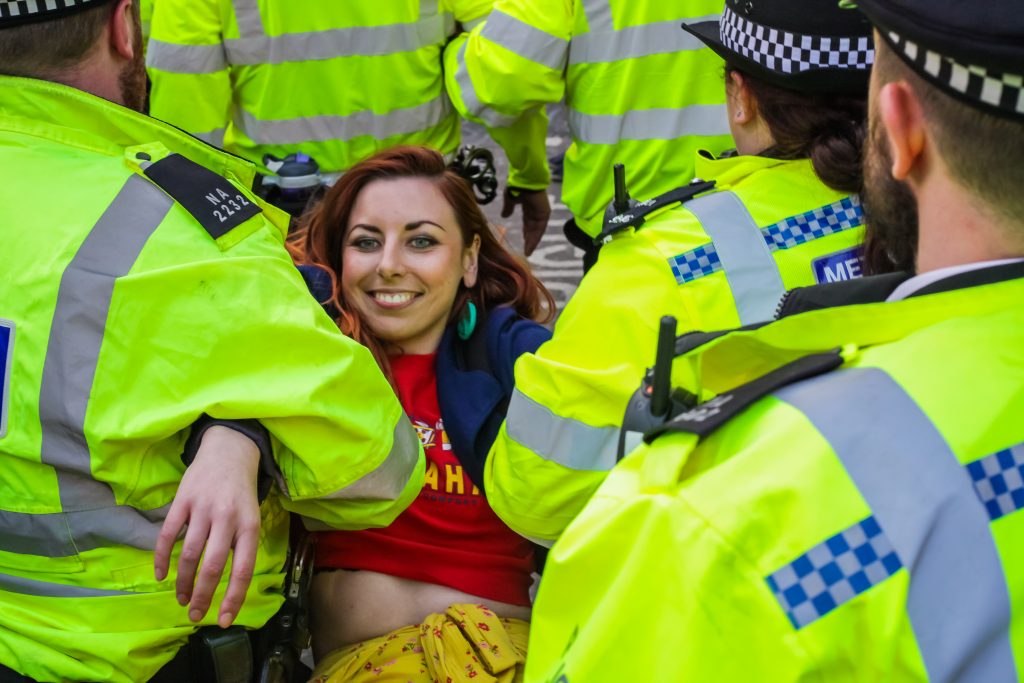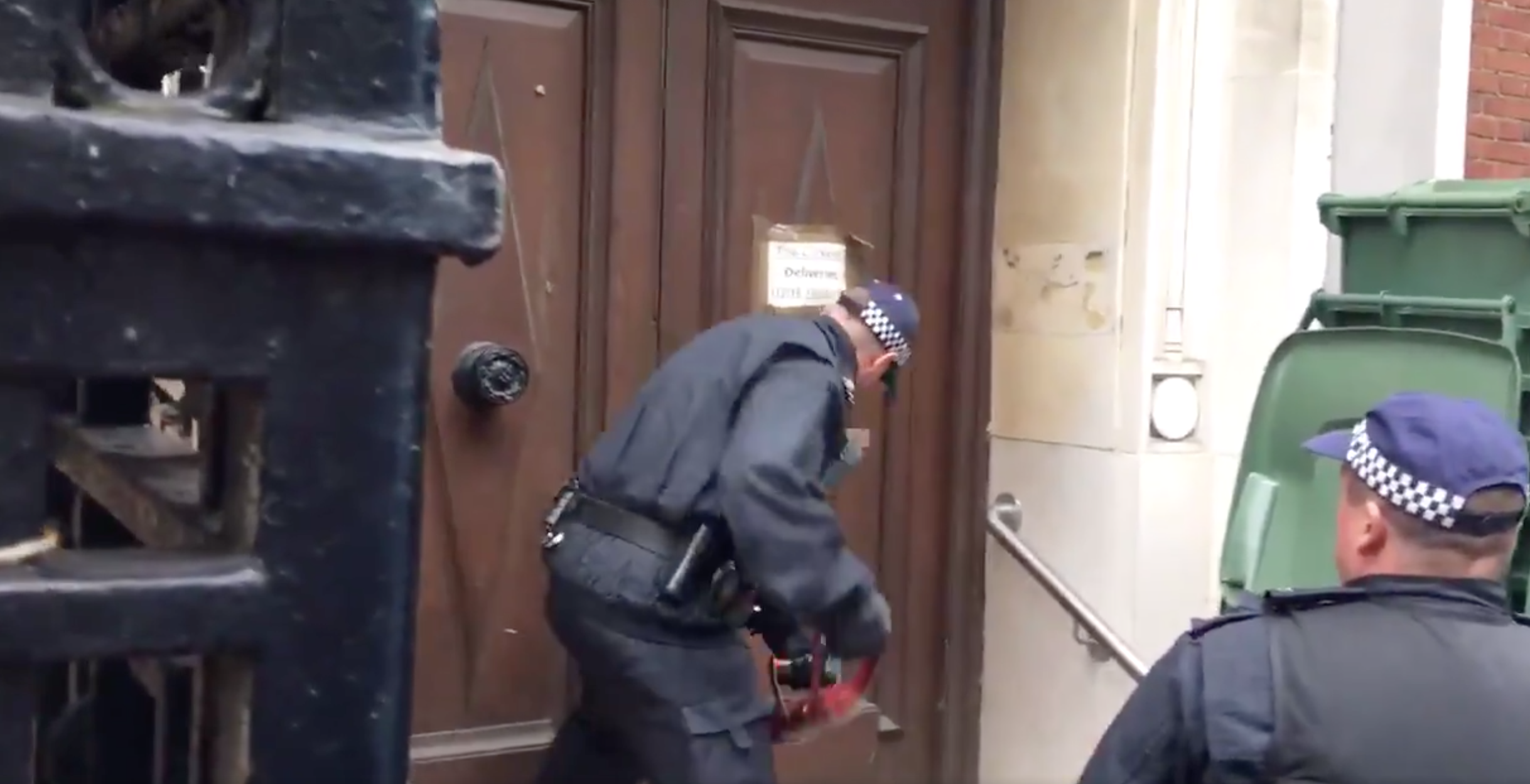The arrest of ten activists from climate campaign group Extinction Rebellion, days before the start of its planned protests in London, sets a dangerous precedent which could have a serious chilling effect on the democratic right to protest.
Footage emerged on Saturday (9 October) of Met police officers raiding a warehouse in south London rumoured be storing equipment for a planned 14-day blockade of the roads around parliament.
Seven activists were arrested on suspicion of conspiracy to cause a public nuisance and an eighth on suspicion of obstructing police, all of whom have now been released under investigation. Police reportedly also confiscated a wide range of camping-related equipment, food and small solar panels.
Two more activists, a man and woman, were also arrested on suspicion of conspiracy to cause a public nuisance the following day. The man remains in custody while the woman has been released under investigation.
This preemptive police action is a novel use of state power to inhibit non-violent political protests. It differs from the usual situation in which the police arrest protestors for ‘obstruction of the highway’ after a protest has begun and turned disorderly. In those circumstances the protesters have been able to exercise their right to protest for a period of time. Pre-emptive arrests deny the exercise of that right.
It is well established that the right to protest is protected by the Convention of Human Rights within Article 10 (freedom of expression) and Article 11 (freedom of association).
The arrest of activists planning a non-violent protest clearly infringes both of these rights. But both rights are qualified, meaning that states can take proportionate steps to curtail them when deemed necessary to prevent crime or disorder among other reasons. The key question is whether the arrests satisfy this proportionality test.
The Balancing Act

London, UK – April 17th 2019: Extinction Rebellion, climate change activists, stage a demonstration in Oxford Circus, Marble Arch, and across London calling on the UK government to declare a ‘climate emergency’.
Under the test, state action must:
- Be aimed at securing a legitimate social goal (here it would most likely be the prevention of disorder);
- Have a rational connection to that goal;
- Be no more than is strictly necessary to achieve that aim;
- And must balance the individual’s rights with the social goal.
The pre-emptive arrests in this case go beyond what is strictly necessary to prevent disorder, and fail to balance the individual’s vital democratic right to protest through free association and free expression. This is due to the use of a conspiracy based offence being highly problematic, as is the use of public nuisance.
Firstly, conspiracy offences are notoriously broad and rather vague. Widespread use against protest organisers and activists could have a serious chilling effect on legitimate protests that are vital to a democratic society. The deployment of such a broad offence provides the police with wide powers that are insensitive to the delicate balancing of the individual’s human rights with the intended social goal of preventing disorder.
Secondly, the use of pre-emptive arrests goes beyond what is strictly necessary to prevent disorder. No disorder has actually occurred at the time of the arrest and there is a great deal of uncertainty of whether a public nuisance (which is an inherently disorderly offence) would occur. The case of House of Lords in R v Rimmington emphasised the requirement of ‘sufficiently serious effect on the public’ for the public nuisance.
It is difficult to predict how the use of tents, food and solar panels would have a serious effect on the public. Additionally, common police tactics reveal that the pre-emptive arrests go beyond what is strictly necessary to prevent disorder. The police usually make arrests after a protest has begun for the offence of “obstructing a public highway” should it turn disorderly, and the CPS has adopted the view that the public nuisance offence should be used sparingly.
In light of these issues, in the realm of non-violent political protests pre-emptive arrests are, at least for the offence in this case, liable to undermine the internationally protected right to protest; and consequently the health of our democracy. This episode sets a dangerous precedent in which the right to protest is undermined by pre-emptive arrests of key leaders and organisers, using broad criminal offences.
A final word on the legitimacy of political protests is required. However, much one might disagree with the ideas and aims of Extinction Rebellion, it is important to the health of a democracy maintain the freedom to express dissent, even through potentially disruptive but peaceful methods.
The Extinction Rebellion protests continue.
What to know more? Why not read:
- An Extinction Rebellion activist tells EachOther why the group is protesting in London.
- An opinion piece on why the climate crisis is a human rights issue.
- An anti-fracking campaigner tells EachOther why he is undeterred from protesting after receiving a suspended prison sentence.







